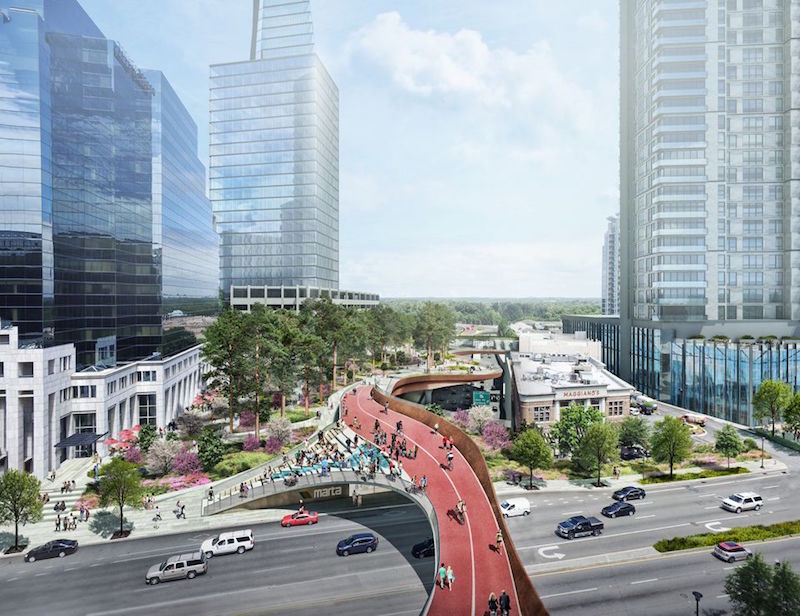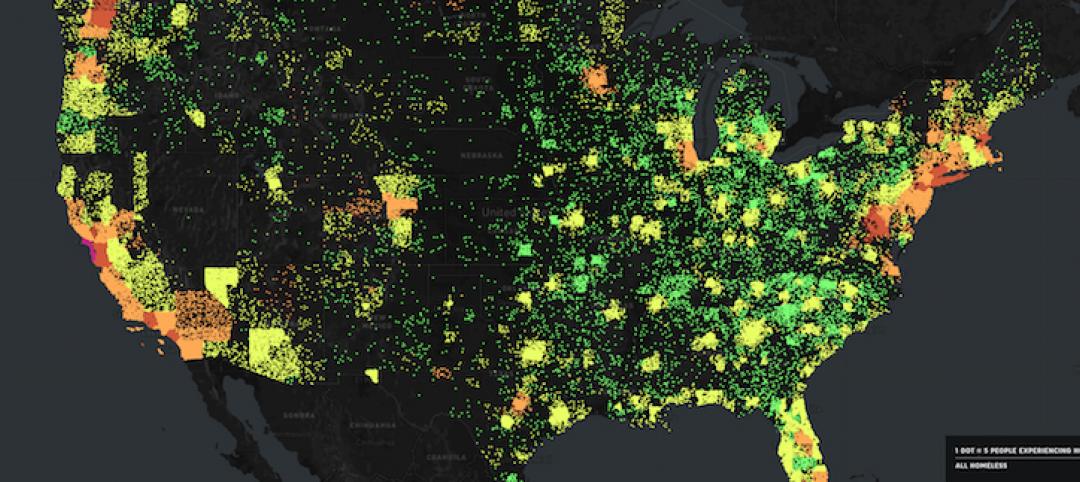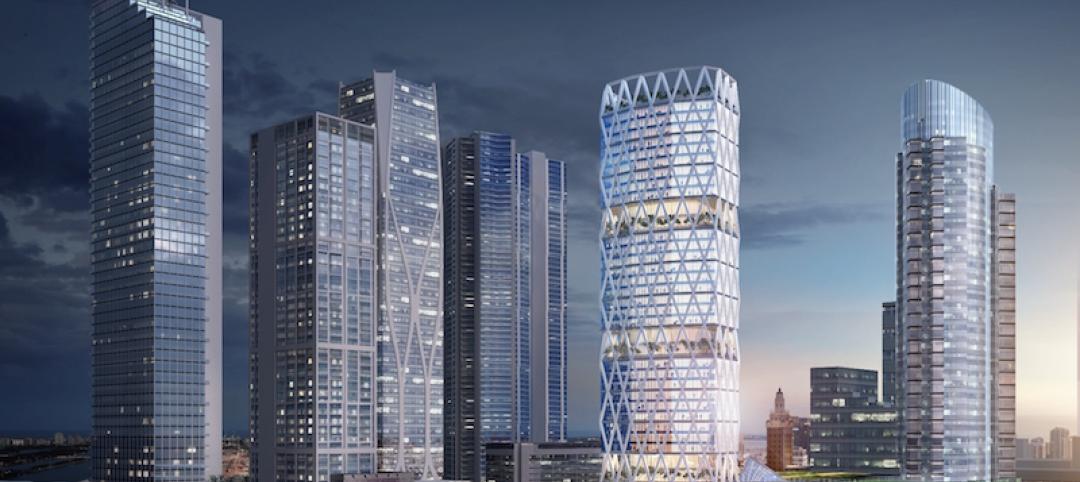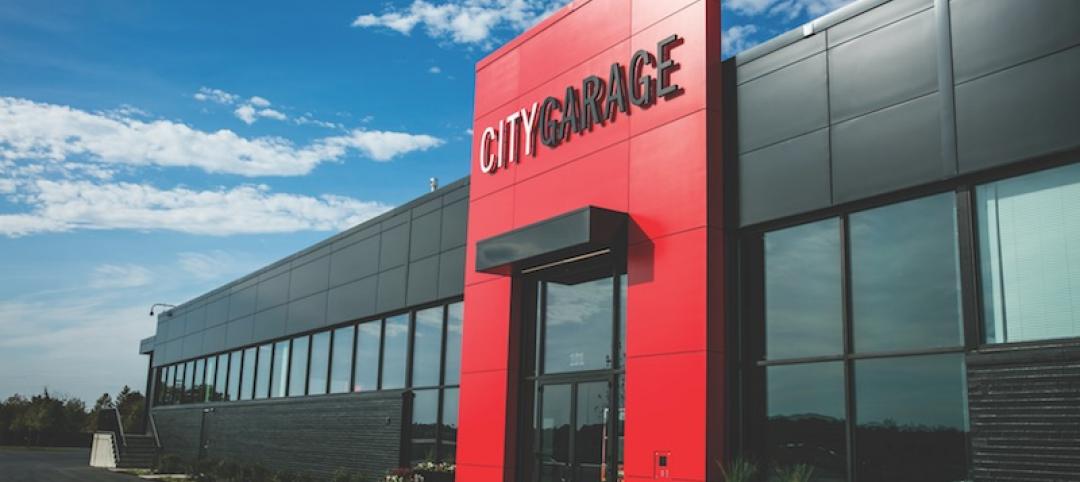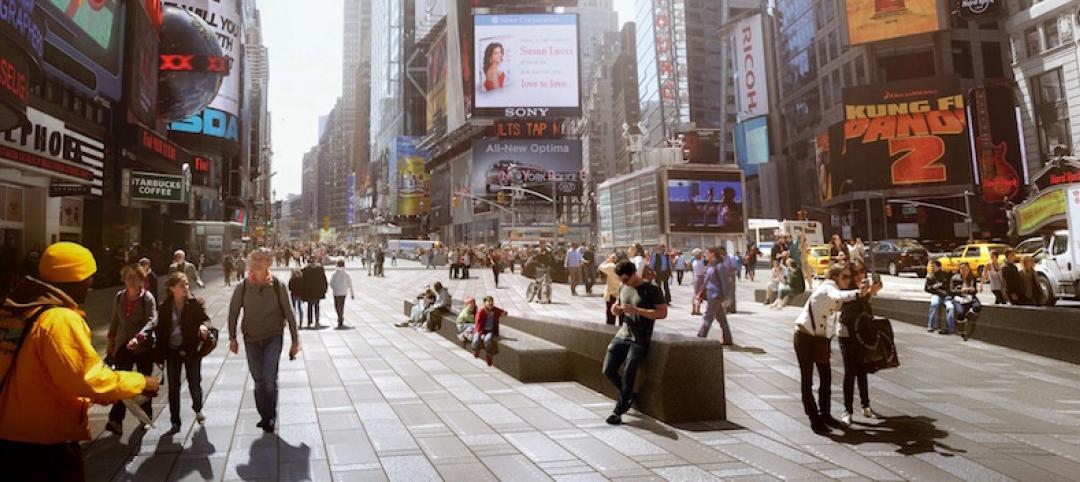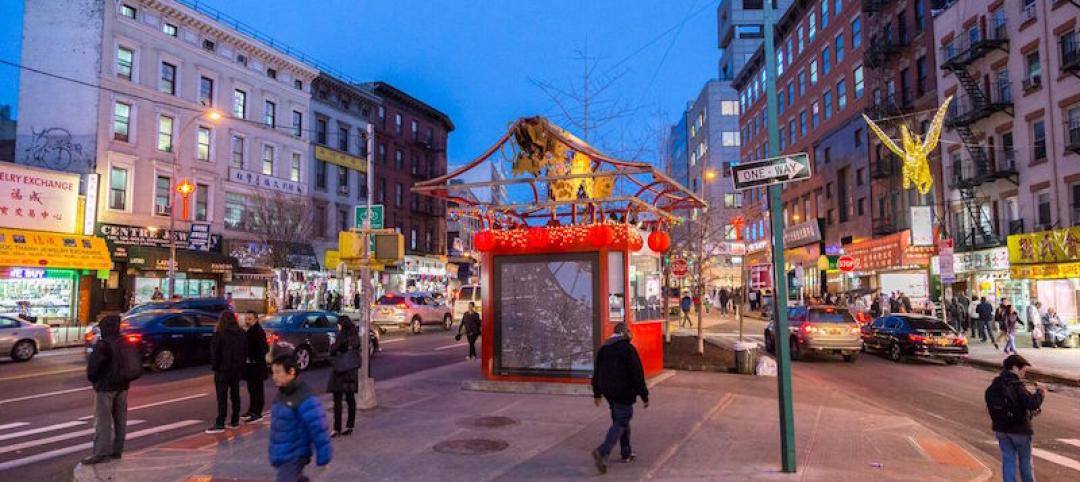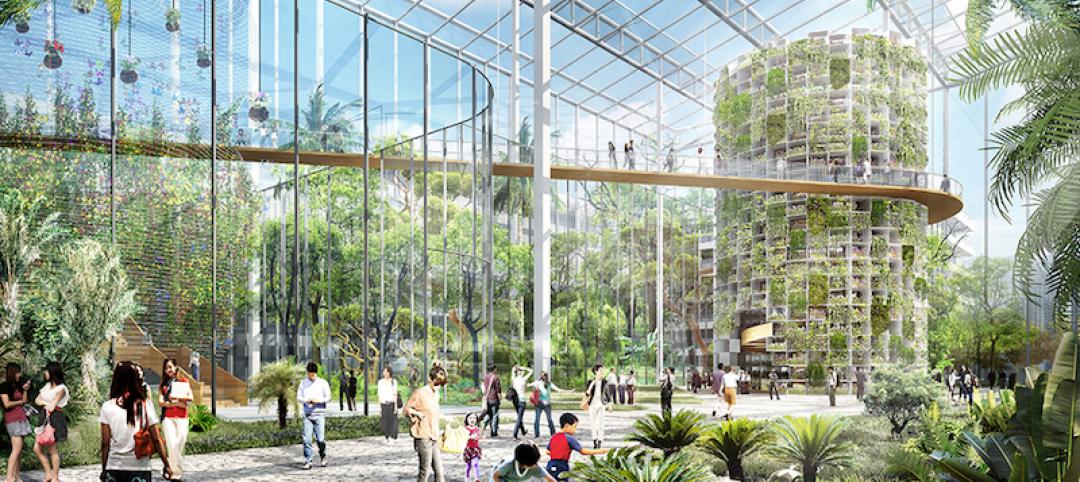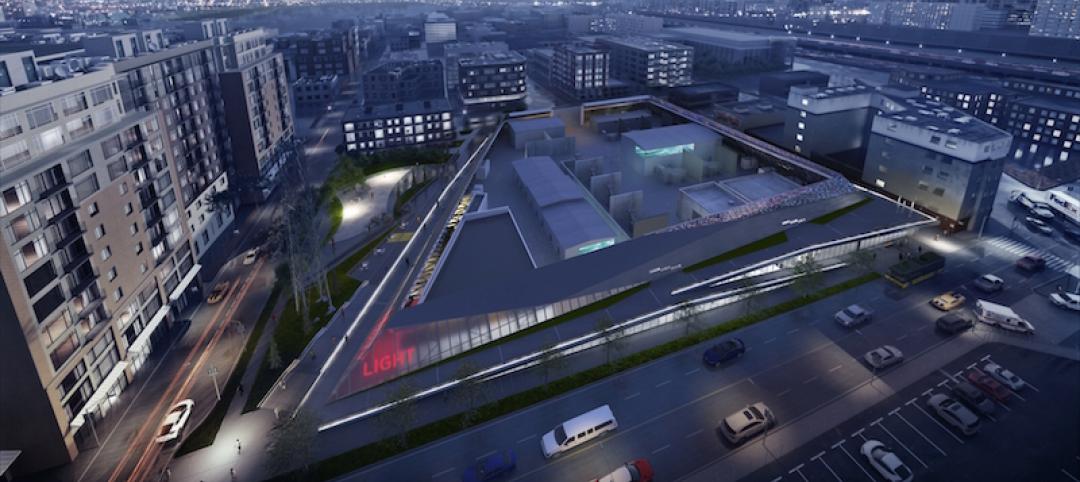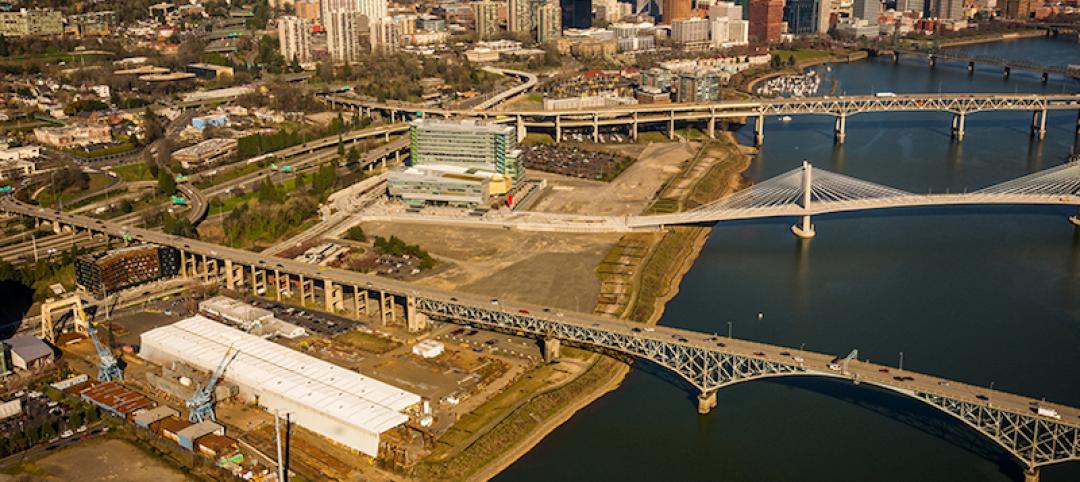Early next month, the Buckhead Community Improvement District (BCID) is scheduled to meet about how to move forward with its plan for a half-mile-long urban park that would be built over a busy highway and MARTA rail line that currently bifurcate this affluent Atlanta neighborhood.
BCID, a group of businesses that tax themselves for infrastructure projects, unveiled the initial design concept for Buckhead Park Over GA400 (for Georgia State Route 400) at the Buckhead Theater on September 7. The overhead park would stretch 2,400 feet from the Atlanta Financial District on Peachtree Road to the Lenox Road-GA 400 interchange. It would also connect with the PATH 400, a regional recreational and commuter bike path and running trail.
Another group, called Central Atlanta Progress, last month proposed a similar, more ambitious deck proposal that would cap the city’s Downtown Connector—known as “The Stitch”—from Spring Street to an area near Georgia Power’s headquarters, according to the Atlanta Journal-Constitution.
While a recent poll found strong support for the bigger project, it would cost an estimated $300 million, whereas backers of Buckhead Park Over GA400 have pegged the price tag for realizing their concept at a bit above $150 million.
Buckhead Park Over GA400, which was designed by Rogers Partners Architects + Urban Designers with Nelson Byrd Woltz Landscape Architects, would have three components:
•The Commons, at the north end of the park, would include an intimate amphitheater for formal and casual gatherings.
•The Plaza, at the midpoint of the park, would provide access to surrounding retail, restaurants, and the rail line.
•The Gardens, as its name implies, would be dominated by a garden setting, and provide a green oasis for visitors. The park itself would be unified by shade trees that run the length of the concept.
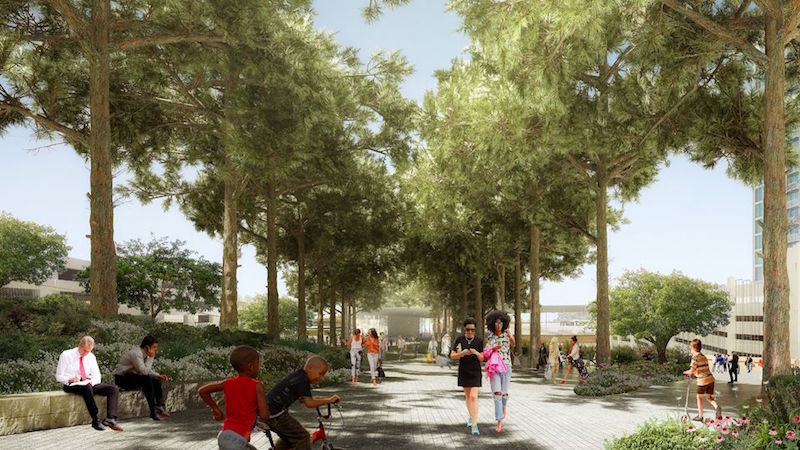
An allee of shade trees would run the length of the park, whose southern end would offer a garden setting. Image: Rogers Partners Architects + Urban Designers/Nelson Byrd Woltz Landscape Architects.
Buckhead Park would have extensive pedestrian paths that connect to surrounding streets, encouraging people to use it as a thoroughfare to reach workplaces, their homes, or cultural attractions.
“This park will create quality public space where you already have density,” explained Rob Rogers, principal at Rogers Partners. “Like most great public places, it’s about creating a series of scaled experiences for visitors.”
Buckhead Park would be the latest in a series of elevated urban parks that have made their marks in cities such as New York, Paris, and Dallas. BCID is positioning Buckhead Park not only as a counterbalance to Atlanta’s car-heavy culture, but also as a potential boon to local businesses for which the park would generate more foot traffic.
“We are very excited to move ahead on this pioneering project,” says Jim Durrett, BCID’s Executive Director. “When Buckhead Park Over GA400 is complete, Atlanta will have a unique, world-class civic space that is both beautiful and functional.”
Before it meets next month, BCID will review community feedback about the project. Its next stage would be preliminary engineering, engaging key agency partners, and coming up with a funding strategy.
Related Stories
Architects | May 26, 2017
Innovations in addressing homelessness
Parks departments and designers find new approaches to ameliorate homelessness.
Mixed-Use | May 24, 2017
Schmidt Hammer Lassen Architects will develop mixed-use project on former site of Carlsberg Brewery
The 36,000-sm project will cover a city block and include a residential tower.
Mixed-Use | May 23, 2017
45-story tower planned for Miami Worldcenter
Pickard Chilton Architects will design the 600,000-sf 110 10th Street.
Movers+Shapers | May 8, 2017
Movers + Shapers: Charm City's lucky charm
Under Armour’s Kevin Plank launches a $5.5 billion redevelopment to transform Baltimore into “the coolest city in America.”
Urban Planning | Apr 24, 2017
No Small Plans hopes to inspire Chicago teens to design the city they want
Launched with a Kickstarter campaign, the Chicago Architecture Foundation aims to get No Small Plans into the hands of thousands of Chicago teens.
Urban Planning | Apr 20, 2017
Times Square renovation officially opens
The Snøhetta-designed project nearly doubles the size of public space at one of the most visited attractions in the U.S.
Architects | Apr 20, 2017
‘Gateways to Chinatown’ project seeks the creation of a new neighborhood landmark for NYC’s Chinatown
The winning team will have $900,000 to design and implement their proposal.
Green | Apr 14, 2017
Sunqiao looks to bring agriculture back to Shanghai’s urban landscape
Vertical farms will bring new farmable space to the city.
Industrial Facilities | Apr 12, 2017
Energizing the neighborhood
The Denny Substation in Seattle is designed to give local residents a reason to visit.
Urban Planning | Apr 3, 2017
Capturing the waterfront draw
People seem to experience a gravitation toward the water’s edge acutely and we traverse concrete and asphalt just to gaze out over an open expanse or to dip our toes in the blue stuff.


